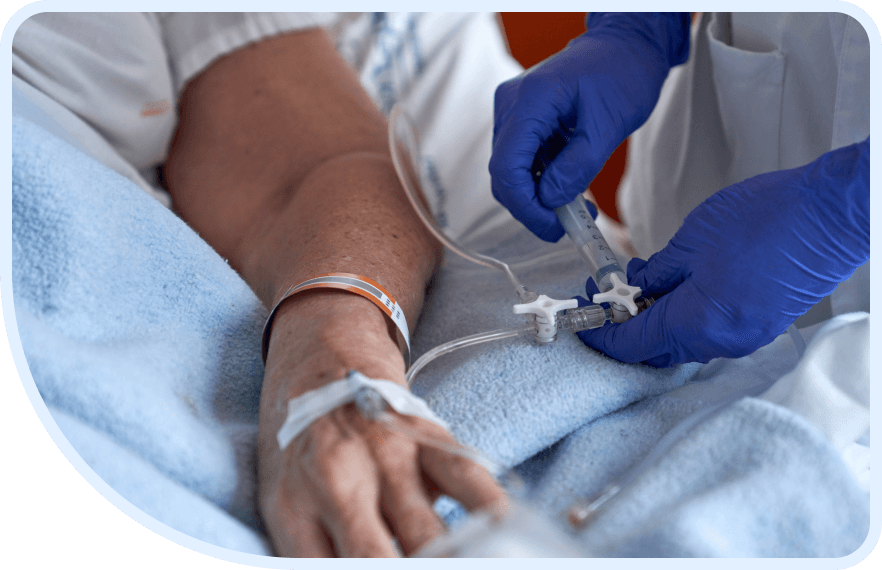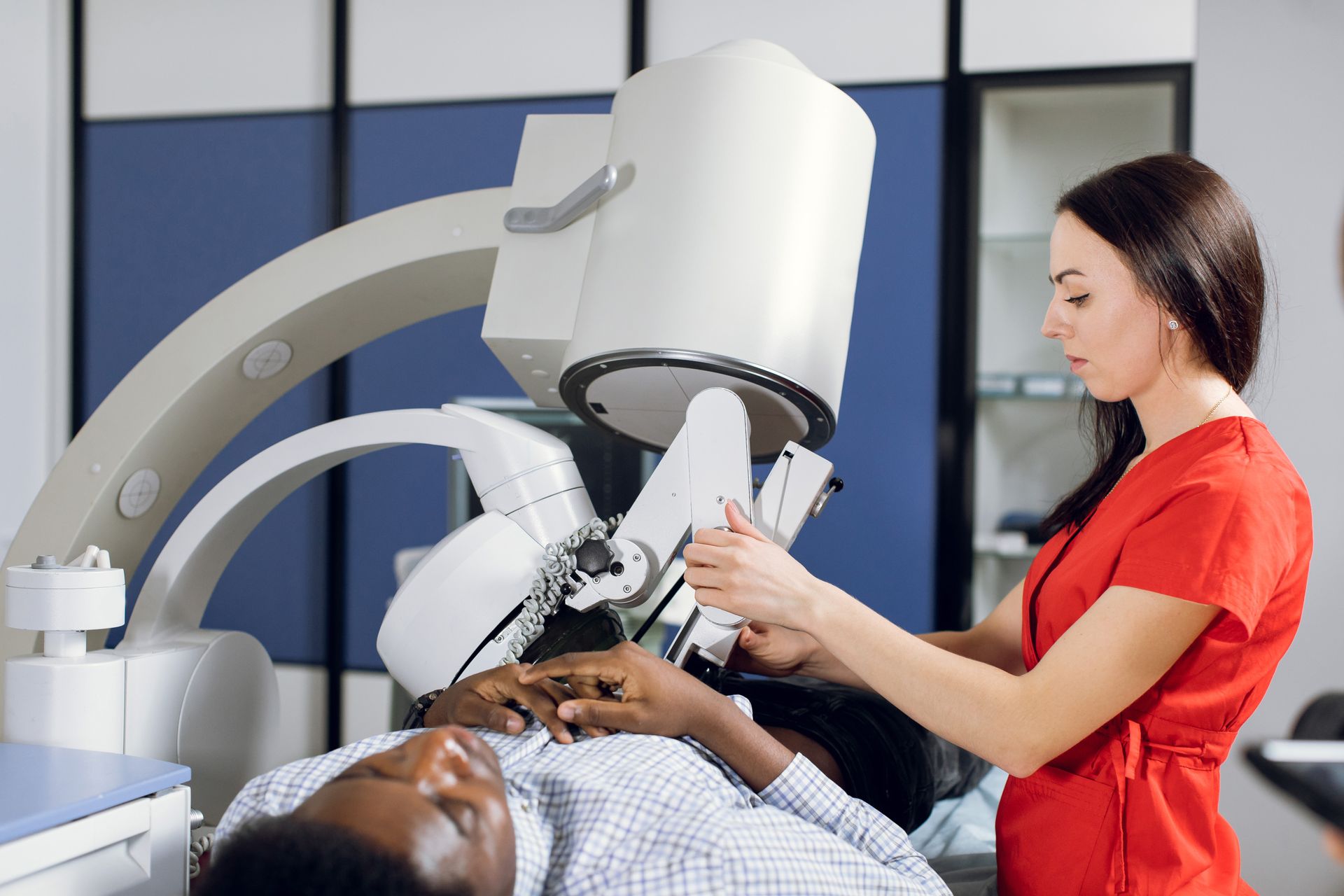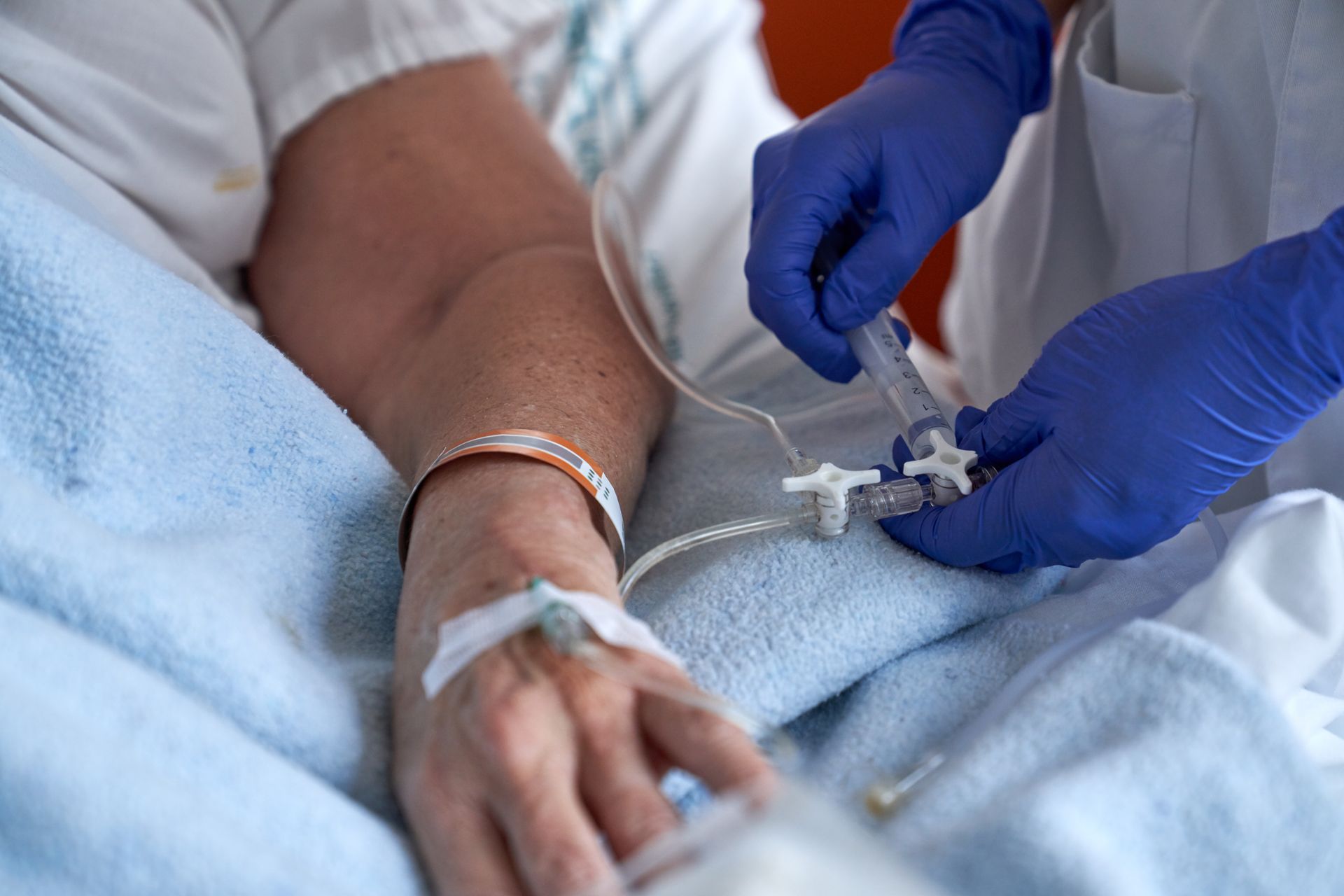From there, you may need to take one or more blood tests:
Complete Blood Count (CBC):
This test gives a detailed count of the different cells in your blood.
Blood Chemistry Tests:
These measure substances in your blood that can indicate your condition.
In your diagnosis, biopsies can also be a vital tool, acting like a blood cancer test:
Lymph Node Biopsy:
A small tissue sample from your lymph nodes may be taken for analysis if lymphoma is suspected.
Bone Marrow Aspiration:
A procedure is performed to collect a sample from your hip or breastbone to check for cancers that start in the bone marrow. This sample helps to identify abnormal cells and genetic changes.
Depending on the type of blood cancer suspected, various imaging scans might be used:
CT, MRI, and PET Scans:
These can reveal enlarged lymph nodes or other affected areas in your body.
X-rays and Ultrasound:
These might be used alongside biopsies to locate areas for sampling.






















